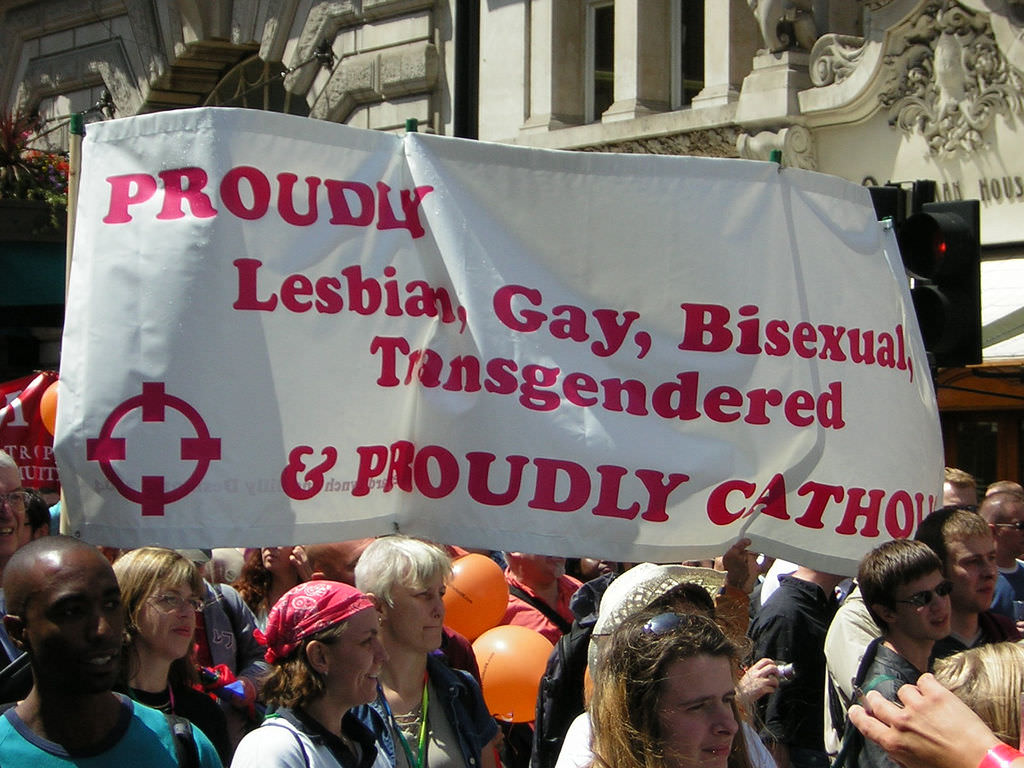It is a bold claim, but new research carried out by the Oasis Foundation explains how the church is the predominant cause of mental health problems in the LGB community.
To acknowledge that they are part of the problem is nothing new, but to call them the leading cause of the problem is bold. However, the research backs up the claim.
Oasis describes how all but one of the major church denominations in the UK are direct causes of discrimination against LGB people, and the “biggest contributor of negative views” within debates on topics relating to LGB people. The report goes on to explain how this is a direct cause of self-harm, suicide and other mental health issues experienced by those in the LGB community.
Homophobic Christians are not just Pentecostals
When thinking about homophobic Christians, it is easy to focus on American evangelicals and extremists like the Westboro Baptist Church. However, your average Church of England devotee who mutters about marriage being ‘between one man and one woman’, or the Catholic who refuses to offer the sign of peace to the gay man in her congregation can also have devastating effects on the LGB members of their churches.
Church goers are three times more likely than non-religious people to have negative views about LGB people and same-sex relationships, and they are slower than non-religious communities to become more liberal in their attitudes. These views contribute to an environment in which homophobia and heterosexism thrive, knocking the confidence of LGB members and leading to a sense of inferiority to heterosexual friends and relations.
Further problems are experienced when LGB people are discriminated against and refused access to church communities and groups.
The biggest negative voice
While it is not new that Christian churches are sometimes hotbeds of homophobia and biphobia, what this new research shows is that the church in the UK is actually “the biggest negative voice in the public, political and media discussion around the legitimacy of same-sex relationships”:
- 74% of signatories on the Coalition for Marriage website (a campaign against equal marriage) identified themselves publicly as Christian
- 91% of negative comments about same-sex marriage in national media articles were made by Christian leaders, commentators or politicians
- 54% of the Members of Parliament who voted against the introduction of same-sex marriage in the UK in 2013 self-identify as Christian, with many more having Christian beliefs that they do not make public.
All of these factors can be considered to be akin to micro-aggressions; they offer a constant backdrop of hate in ways that may not seem overly significant to heterosexual or homophobic people. However, to the LGB community, they present ongoing evidence that we are disapproved of, or even hated, and this has an effect.
The truth is that LGB people are twelve times more likely to experience mental health problems, and enduring discrimination and examples of prejudice and hate are a major contributing factor to this. There is nothing inherent about being gay that makes us mentally ill, it is the heterosexism and homophobia in society, and the obstruction of our ability to be part of a community, that makes us ill.
And when the church is responsible for 91% of the negative comments about homosexuality and bisexuality in the articles we read in the media, it stands to reason that this research holds it ultimately responsible for the self-harm, suicide, depression, eating disorders and more that this community experiences.
Societal discrimination can manifest in a range of ways, from public debates on the ethics of same-sex relationships to the exclusion of LGB people from groups and communities. Both direct homophobia (where somebody is refused access to a community, for instance) and societal inferiority (where LGB people live in a society that prioritises and lauds heterosexuality as the norm and the preferred sexuality) are referenced by the search as discrimination that plays a significant role in the mental distress that this community experiences. 44% of LGB youth have considered suicide and 52% have self-harmed.
Rev Steve Chalke, founder of Oasis, said, “It is no secret that the negative stance taken by the Church, and so many individual local churches, has a hugely distressing impact on large numbers of LGB people and leaves countless numbers of them living lives of forced secrecy and dishonesty. Tragically, it is also common knowledge that the resultant anguish and distress often leads to spiritual, mental and physical harm, and in the worst of cases to people making the desperate decision to take their own life”.
If churches want to be a force for good in the world (and, surely, this should be their primary goal), they need to address the homophobia and biphobia at every level of their membership. Whether it’s a parishioner who hates his lesbian neighbours or a priest who preaches against the evils of same-sex love, it has a horrifying influence on the mental health of approximately 10% of the population.
Photo: Ihar/Creative Commons

